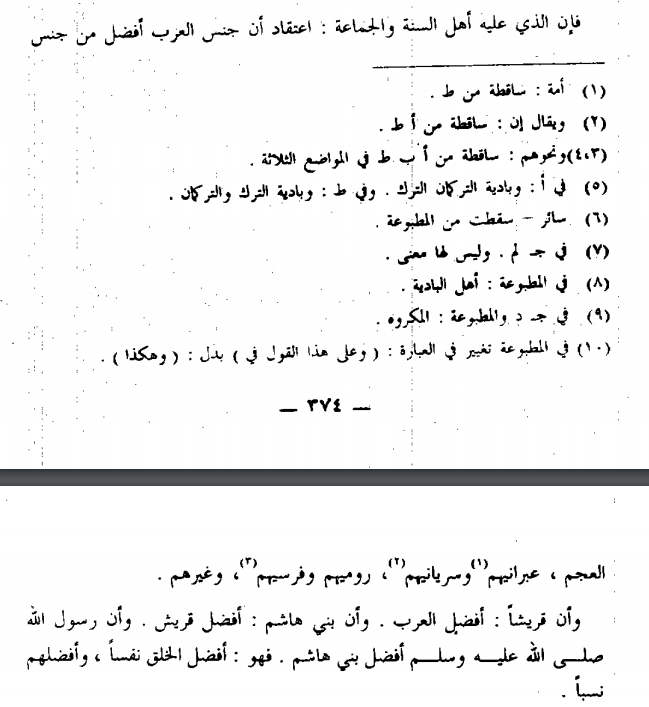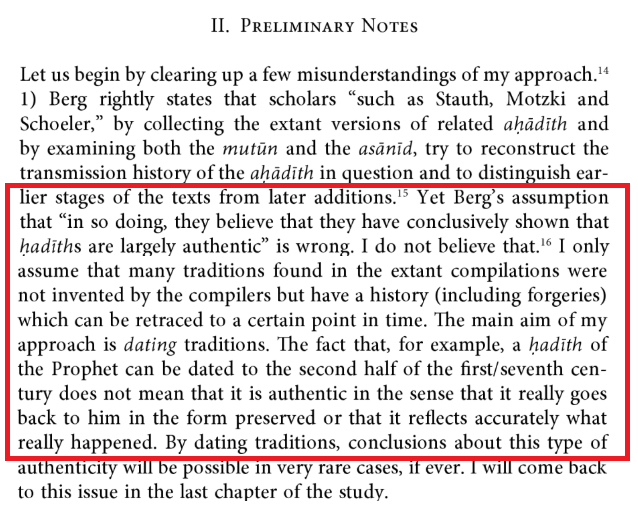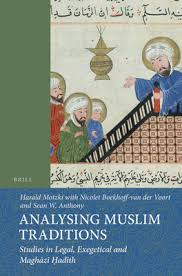Will be teaching the Shuʿūbiyyah this week and their early efforts to contest Arab supremacy in the Abbasid period, and I am reminded of the notorious views of Ibn Taymiyyah (d. 1255) on the topic ...
In his Iqtiḍāʾ, Ibn Taymiyyah declared, “Any who would adhere to ahl al-sunnah wa-l-jamāʿah [i.e., be an orthodox Sunni] must believe that the Arab race is superior to the non-Arab races, be they Hebrews, Aramaens, Romans, Persians, etc.” 

In similar discussion, IT states in a fatwā, “The Arabs are the best of Adam’s children, as is authentically narrated from the Prophet.” 

Much of Ibn Taymiyyah espouses here is really just a basic facet of the early creeds of the Ḥanbalī’s attributed to Aḥmad ibn Ḥanbal (d. 855). Several versions appear in Ṭabaqāt al-ḥanābilah by Ibn Abī Yaʿlā (d. 1133). For example ...
"The right of Arabs is recognized as is their supremacy + precedence. They are beloved on account of the ḥadīth of God’s Messenger, ‘Loving them is faith, despising them hypocrisy.’ One does not confess the doctrine Shuʿūbīyah and vile mawālī who do not love the Arabs." 

Ironically, the clearest statement of Arab supremacy is forever intertwined with the Shuʿūbīs efforts to deny it.
Much of *what
For a recent translation of these early Ḥanbalī creeds, see academia.edu/36259260/Eight…
of the early creeds of the Ḥanbalī’s > the early creeds that the Ḥanbalīs
PS: The famous saying attributed to the Prophet's farewell address, "No Arab has precedence over a non-Arab save through piety (لا فضل لعربيّ على أعجميّ إلّا بالتقوى)" is interpolated, spurious, and does not appear in the earliest versions of the speech recorded. BUT>>>>
This idea is already clearly expressed in Q. 49:13, "People, We created you all from a single man and a single woman, and made you into races and tribes so that you should recognize one another. In God’s eyes, the most honored of you are the ones most mindful of Him." 

*Ibn Taymiyyah died 1328. I accidentally copy and pasted the death date for his grandfaterh. h/t @abaanmiodrag2
• • •
Missing some Tweet in this thread? You can try to
force a refresh















